Japan, 17 October 1898. Shinichi Suzuki was born in Nagoya. He was the musician, philosopher and educator who founded the international method of musical education that took his name: the Suzuki method. Developed between the 1920s and 1930s, it was an almost visionary pedagogical novelty, a formative philosophy for musical learning also known as talent education. The Suzuki method in fact applies to students starting from pre-school age, nourishing their environment with inputs and simultaneously developing both their artistic and technical maturity and their morality and character; for the founder, musicality should be acquired as a ‘mother tongue’, because music, according to him, is learnt through listening, repetition and memorisation, the way we learn our mother tongue. From Asia to Europe – the music chosen and studied by older children is drawn from the Baroque or Romantic repertoires – to the whole world, the Suzuki courses are now recognised and spread globally; Cittadellarte, in this regard, is a point of reference for the Biella area, as it has been hosting lessons for children and teenagers for years.
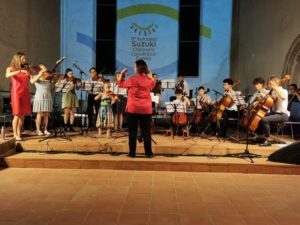
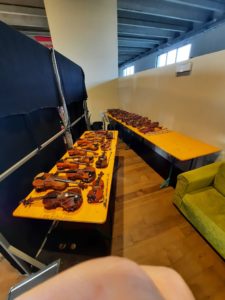
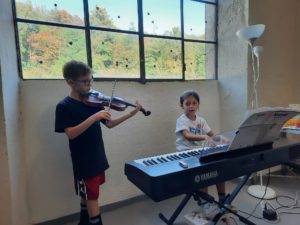
The teacher
The teacher of the Suzuki course at the Pistoletto Foundation is Liana Mosca, who is also currently studying for a master’s degree in music for violin and piano at a Swiss conservatory, specifically at the AcCLaV projet de recherche at the Haute École de Musique de Genève. An Italian-American violinist, she began her musical studies with Lee Robert Mosca at the Suzuki Talent Center in Turin and graduated from the Milan Conservatory in 1988, under the guidance of Osvaldo Scilla. She continued her studies at the Musik Akademie der Stadt in Basel, obtaining the Konzert-Diplome in 1993, and then specialised in chamber music at the Vienna Conservatory. Her training, which she began as a child with the Suzuki method, also includes all five levels of teaching qualification from the European Suzuki Association (ESA) in London.
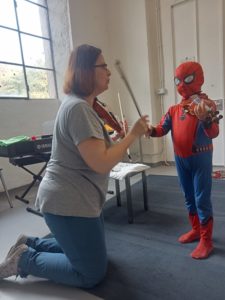
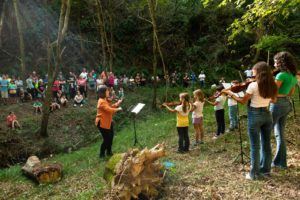
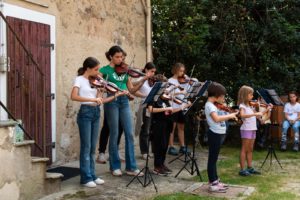
The lessons and the participants
The courses are aimed at children and teenagers between the ages of 3 and 18; there are currently 15 young violinists studying at Cittadellarte, from Biella and its province (the youngest is 4, the oldest 15). The course is structured in individual lessons, once a week, with the presence of a parent required for those under 9 years of age; group lessons, once a month, divided into two groups (for the youngest and for the most experienced, the latter practising on chamber music); and rhythmic lessons, run by Antonella Maffeo, every two weeks and reserved for the youngest students. Intensive workshops are also offered, usually twice a year, as well as extra preparation for concerts. Age diversity is one of the strengths: in the group lessons, children of different ages play together, creating a bond that starts with music: the younger ones have the older ones as examples to emulate, which triggers a process of empowerment that leads the older ones to become, in some way, teachers themselves. This plurality is part of the philosophy of the method: what happens, the teacher explained, is that “a four-year-old looks to the older child as an example, while the latter adapts to the younger student’s speed. This way a profound relationship is created between the participants: it is often the students themselves who ask me to be able to play together”.
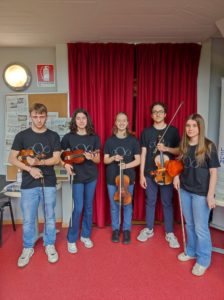
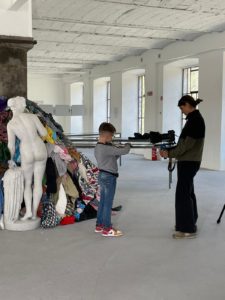
The Foundation as educational cradle, from Suzuki to Montessori
Over the years, Cittadellarte has proved to be not only a background of artistic prestige, but also consistent with the philosophy of the Suzuki method. Michelangelo Pistoletto, in his well-known 1994 Manifesto, wrote that his Art Project was “based on the idea that art is the most sensitive and integral expression of thought, and it is time for the artist to take upon themselves the responsibility of bringing into communication every other human activity, from economics to politics, from science to religion, from education to behaviour, in short all the instances of the social fabric”. Music, therefore, also finds creative lifeblood at the Pistoletto Foundation and goes in parallel with Cittadellarte’s Learning Environments’ school, which follows the Montessori method. This is an educational system developed by the pedagogist Maria Montessori, based on independence, freedom of choice in one’s educational path and respect for the child’s natural physical, psychological and social development. With their similar approach, the Montessori and the Suzuki philosophies unite Cittadellarte’s teaching and educational activities. “My students,” commented Liana, “are lucky to attend their lessons in this context; they have always been curious to discover Pistoletto’s work and, to this end, an ad hoc guided tour for children and parents was organised last year. It was an experience everyone enjoyed, which we will repeat soon”. To make the link between the course and the Foundation even deeper, there is a figure who works behind the scenes: Elena Pasquali, part of Cittadellarte’s staff, who has always taken care of the logistical and organisational side of the course. But her professional contribution does not end here, and is not trivial: with the collaboration of the Foundation’s graphic designer Liudmila Ogryzko, she also prepares the diplomas awarded to the students after the assessment examinations that intersperse their course.
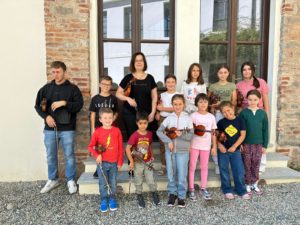
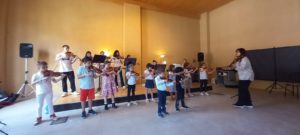
The role of the parents
Forget about sports training sessions or music courses where parents leave their child with the coach or teacher for an hour or two and then return to pick them up. It does not work like that at all for the Suzuki courses, especially for the youngest students: at least one parent is required to be present during the lessons, because they must accompany their child in the process of growth, not only cultural and musical, but emotional and intimate. “The child,” Liana emphasised, “doesn’t learn only music from me, but a well-rounded discipline. In this process, the mother or father must work with them: for the child, having a family member by their side is very important, the parent is a kind of glue between their world and the world of music. We can’t forget that the first teachers in a child’s life are the parents, I just act as an intermediary with the violin”.
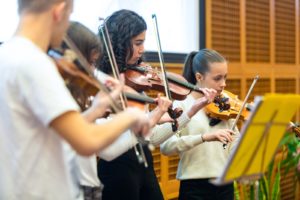
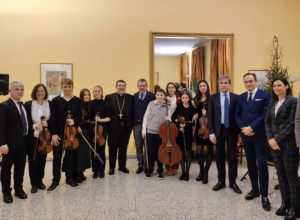
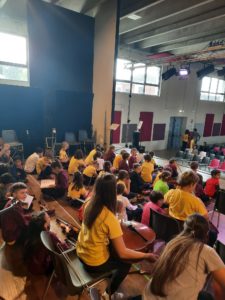
The concerts
The pupils periodically engage in a series of concerts and recitals, which are essential for them to be able “to share their progress with loved ones or an audience (the concerts are open to the public). They are moments of celebration,” Liana specified, “not moments of verification or judgement”. Let’s find out what the group’s next appointments are: on 2 March at Buronzo Castle, in parallel with an art exhibition; on 16 March at the Leo Club; on 24 March a recital of the youngest students (the location is still being defined); on 23 April at Città Studi in the spaces of the association Biella Cresce; and on 12 May (again with details still being organised). Then in June is the end-of-course-year recital at Cittadellarte, mainly featuring individual performances by the young musicians.
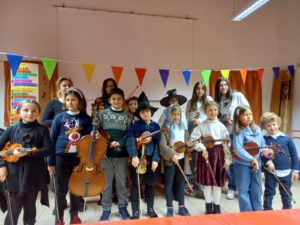
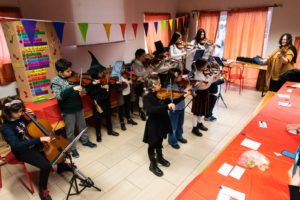
The teacher’s conclusions
“By following our course,” Liana said, “you don’t just learn a musical technique, you dedicate time to an all-round discipline, touching on aspects such as beauty, body control and coordination, memory and interpersonal relationships. Training professional musicians is not the priority, because the Suzuki philosophy aims at educating through music in all possible fields, sharing this objective with the families. We want to educate the person at 360 degrees through the study of violin”. Liana went on to stress her commitment: “I can promise that all the energy I receive from my students is given back. It is a vital circle. I will continue to enhance the children’s skills without impositions, but by bringing out the essence of the child according to their identity”.
For info on courses and their costs: store@cittadellarte.it – 015.8971064.

